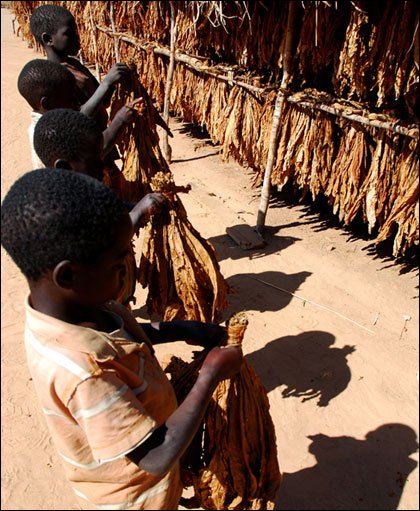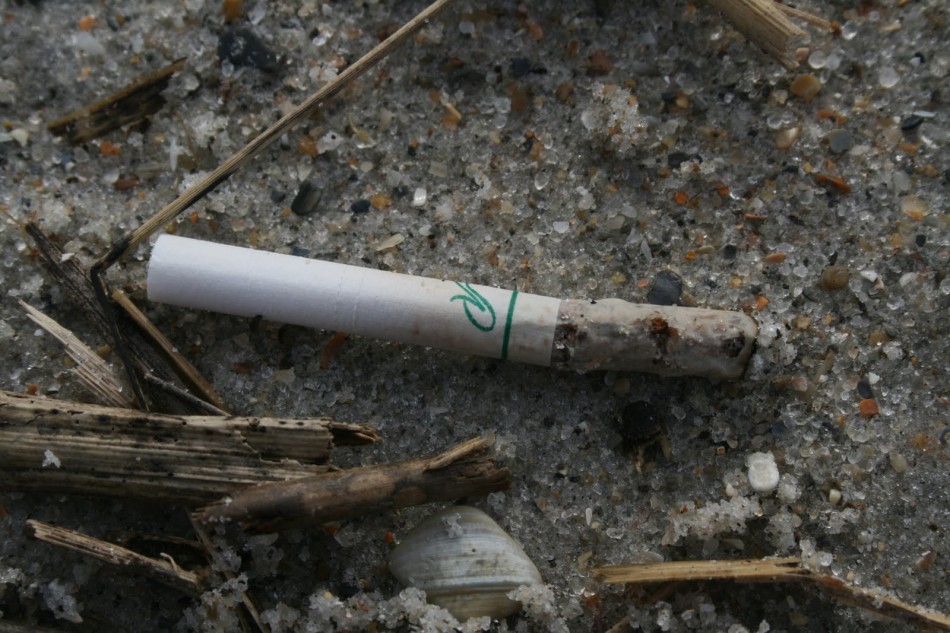
From Plantation to Post-Mortem: The World Behind the Humble Cigarette
Story by Dominic Dawes
As he sat wringing his hands together, my source was clearly agitated.
“I don’t know whether or not I should be talking about this,” he said “but someone needs to know the truth of the circumstance”.
What my source was so reluctant to talk about was the exploitation endured by the labourers within the Tobacco industry, whose practices are on par, if not exceeding the malice of the Cocoa and Coffee industries based out of third world nations.
“I am sure that there are plantations in the world where men work for fair wages, with all of the safety tools that they need to do the jobs assigned to them, but my situation was so much different” he said.
“As a boy, I was forced to regularly work 18 hour days. By the time I would be finished, my hands would be bloody and blistered from stripping plants bare of their leaves”.
“I would walk up to 80 kilometres every day, going to and from the plantation store warehouse, which was 5 kilometres away from the plantation itself, my feet cracked and blistered because of this. I was living in hell”.
My source was a child labourer on a Tobacco plantation in Malawi, a poor African nation, racked with the same festering corruption and greed as plagues other nations on the African continent.
“Government regulations you say? The only regulation my government had in place was to line the pockets of the men running the country. So long as they were paid, no one cared” my source said
“We children were nothing to anyone. We worked for so little. Cost so little. And in the end, we were easily discarded when we fell.”
My source, who for fear for his family still in Malawi wanted to remain anonymous, had the pain and suffering of his childhood etched into his 25 year old face. The scars may long have faded from his flesh, but the depravity of his exploitation was seen clear as day in his sunken eyes and cheek bones.
“People in this country seem to think our lack of education wasn’t good, but because we were earning money, we at least managed to make ends meet” he said.
“What people in the world do not know is that we were so often not paid. We were beaten, had the money we worked 18 hours a day for taken by our supervisors and then forced to keep on working.”
“It is no life for a child. I still carry the scars of beatings from 15 years ago.”
There was not a single skerrick of exaggeration in his voice, no hint of hyperbole or falsehood in the tale he told. The scars on his legs- from repeated canings- told the horror of his predicaments.
“It’s funny. When I look back to the days when I was working the plantation, it wasn’t so bad. All of the children were there. I had friends, it all seemed so natural. But now, looking at myself in the mirror, all I see is wasted opportunity and stunted development.”
“I see myself as an example of the failings of humanity. At my very core, I still feel as if I am broken. I tremble at the sight of a raised hand, even if extended in a gesture of friendship.”
What truly makes my source’s story heart wrenching is that this is not an isolated case. Not to a single plantation, not to a single region, not even to a single nation. The violation of the rights of children is endemic in the industries of vice and self-satisfaction. The most pertinent question to ask in the light of this, is will people change their habits given enlightenment on the dark side of their indulgence?
As members of the free society, we are encouraged to take part in no practice which exploits the enslavement of a fellow human being. But it seems that instead of breaking the chains which hold down those captive to our vice, the first world has collectively decided to see no evil, hear no evil and speak no evil.
Velvet Winter, a university student and social smoker, was woefully unaware of the exploitation of child labour in the production of her once-in-a-while indulgence.
“I have never had a clue about how tobacco was grown and harvested. I don’t even know what a Tobacco plant looks like” she said.
This raises a crucial question about tobacco consumers; that being just how many smokers know about what their nicotine fix is doing to children on the other side of the planet?
In a survey performed on 48 people, 39 people, 15 of whom are smokers, said they did not know about these practices within the tobacco industry.
What this shows is either lack of interest on the part of smokers in the product they are consuming or apathy on origins. Many of those surveyed were so shocked by this information that they would reconsider their choice to smoke.
But how does this help those who continue to suffer? My source gave me another concerning piece of information about life on a plantation for a child.
“A lot of the time, we were paid in the tobacco we picked. Instead of a day’s wages, or maybe a part of the wage, we were given tobacco for our personal use” he said.
“You can tell what would then happen. Children began to smoke. We were told it would help us relax, help us sleep and we believed them. They were the adults; they knew everything and were in control. Why would they lie?”
Why they would lie is simple. Children cannot survive without the wage they are payed, nor can they live without the tobacco they begin to smoke. Addiction and desperation keep Malawian children harvesting fields for 18 hours a day.
What makes this most concerning is not the exploitation at hand, but the lack of knowledge about this around the world.
So, as the manipulation and exploitation continues, what can we collectively do to stop the attack on innocence? The answer is simple, spread the word.
Velvet Winter believes that, given the damage being done to children, the sacrifice of a deadly vice is nothing but a necessity.
“I don’t think I can bring myself to keep smoking knowing what I know now” she said.
“I don’t think I will ever smoke again”.

